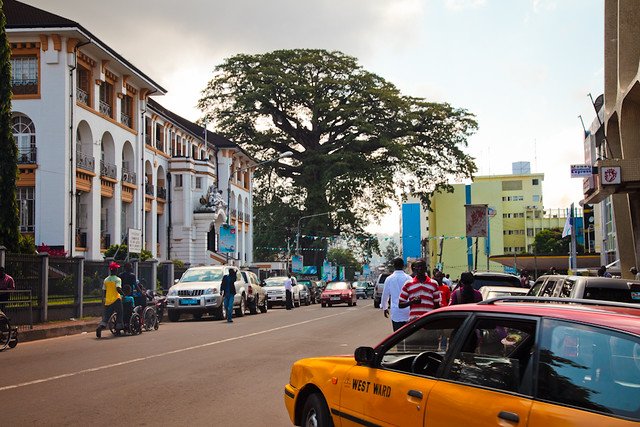By Mahmud Tim Kargbo
Arthur Laffer’s famous concept of the relationship between tax rates and government revenue is often discussed in foreign economic debates, but its lesson applies powerfully to Sierra Leone. Since the end of the civil war, the country’s fiscal journey has shown that taxation, borrowing and public spending are shaped not just by economic logic but by political calculation and the culture of governance.
The Laffer Dilemma in Sierra Leone:
Laffer’s argument is straightforward. When taxes become too high, government revenue eventually falls because people lose the incentive to work, invest or comply. As he once explained, “There is a point at which higher tax rates will generate less, not more, revenue” (http//:www.heritage.org/taxes/commentary/laffers-napkin-sketch-changed-world).
This paradox is clearly visible in Sierra Leone. Despite several rounds of tax increases, the National Revenue Authority continues to miss its collection targets. The 2021 Annual Report of Audit Service Sierra Leone stated that “tax exemptions and compliance weaknesses continue to undermine the revenue base” (http//:www.auditservice.gov.sl).
Meanwhile, the informal economy has grown rapidly. The World Bank reports that “Sierra Leone’s informal sector accounts for more than 60 percent of total economic activity” (http//:www.worldbank.org/en/country/sierraleone/publication/sierra-leone-economic-update). This means that a large part of national trade and labour operates outside the reach of official taxation, creating the very problem Laffer warned about.
Taxation for Control Rather Than Prosperity:
The central problem is not simply weak enforcement or low compliance. It is the purpose for which taxes are used. In Sierra Leone, taxation is often designed less to promote productivity than to consolidate political power.
The Truth and Reconciliation Commission (TRC) noted that “The abuse of state resources and public finance was a major cause of public distrust and contributed significantly to the conflict” (http//:www.sierraleonetrc.org). That warning remains relevant. The 2021 Audit Service Report again found that “billions of leones were lost through irregular tax waivers and mismanagement” (http//:www.auditservice.gov.sl).
When citizens see taxes funding inefficiency and corruption, compliance becomes an act of compulsion rather than civic duty.
Redistribution or Entrenchment of Power:
Both the All People’s Congress and the Sierra Leone People’s Party have justified tax increases as necessary to finance social programmes. When launching the Free Quality Education initiative, President Julius Maada Bio stated, “We are committed to financing education through domestic revenue mobilisation” (http//:www.moe.gov.sl).
Yet the public remains deeply sceptical. According to Afrobarometer’s 2022 Sierra Leone survey, “75 percent of citizens believe the government is performing poorly in fighting corruption” (http//:www.afrobarometer.org/publication/sierra-leone-round-9-survey-summary-results-2022). This perception aligns with the TRC’s caution that “Without transparency, revenue mobilisation will be perceived as exploitative rather than developmental” (http//:www.sierraleonetrc.org).
When citizens do not trust that taxes are used fairly, revenue policies appear less as instruments of equality and more as tools of domination.
The Bureaucratic Culture of Fiscal Policy:
In Sierra Leone, the expansion of taxation often leads not to efficiency but to the growth of bureaucracy. Tax collection agencies multiply, and administrative layers expand, consuming a large share of the very funds they collect.
This has created a three-tier system of inequality:
A narrow political and economic elite benefiting from state contracts and concessions.
A small professional bureaucracy whose survival depends on public funds.
A vast population struggling with high consumption taxes on basic goods such as rice, fuel and electricity.
Such an arrangement weakens the social contract between government and citizens and reinforces dependency on state patronage.
A Rational Irrationality:
If one assumes that Sierra Leone’s tax system aims to promote national prosperity, it seems irrational. However, if its real purpose is to maintain political control, fund patronage networks and sustain a loyal bureaucracy, then it becomes entirely logical.
This is why repeated warnings from the Audit Service and calls for reform from Parliament rarely result in meaningful change. The issue is not a lack of understanding but a deliberate choice to preserve a system that benefits those in power.
A Path Forward:
The Constitution of Sierra Leone (1991) declares that “the security, peace, and welfare of the people shall be the primary purpose and responsibility of Government” (http//:www.sierra-leone.org/Laws/constitution1991.pdf). For that promise to be real, fiscal policy must move beyond extraction and serve as a foundation for genuine development.
This requires:
Full implementation of the TRC’s recommendations for transparent and accountable revenue management (http//:www.sierraleonetrc.org).
Enforcement of the Audit Service Sierra Leone’s findings without political interference (http//:www.auditservice.gov.sl).
Broadening the tax base by formalising the informal sector rather than repeatedly taxing those already compliant (http//:www.worldbank.org/en/country/sierraleone/publication/sierra-leone-economic-update).
Ensuring that every major revenue initiative is directly tied to measurable public services such as education, health and infrastructure (http//:www.moe.gov.sl).
Only through these reforms can taxation become a means of progress instead of a mechanism of control.
Sierra Leone’s experience demonstrates that taxation without transparency leads to frustration, not development. When the state prioritises control over service delivery, it loses both legitimacy and productivity.
Unless fiscal governance is restructured around accountability, efficiency and public welfare, Sierra Leone will continue to tumble over its own Laffer Curve—collecting more in the name of equality while delivering less in the reality of governance.








